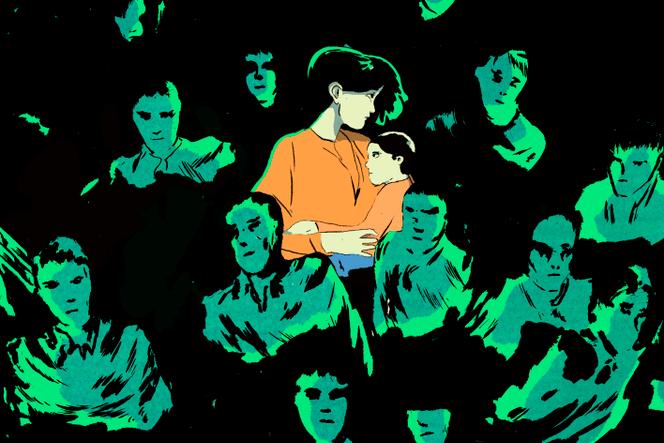


Renee (who only gave her English name) is 28. She's a sales representative for a large solar panel company, and has a boyfriend. They live in Xi'an, a large city in central China, and have been dating for the past two years. But making the step toward marriage is one she isn't ready to take. When asked if she would consider having a child, she says yes without hesitation. But not necessarily in the most traditional way: "Men really can't be trusted. I think being a single mother might be the solution," she explained in a downtown café. "It's a subject I discuss with my friends: In China, in general, men think their role stops at bringing money into the home. Because they work hard, they don't do anything around the house. I think there are a lot of advantages to being married for a man, but for a woman, it means taking care of a child... and a husband!" she said.
A few years ago, being a single mother was virtually unthinkable in China, but society is changing fast. On social media, a number of women have shared their experiences: Ye Haiyang, one of the most popular, has over 7 million subscribers on Douyin, the Chinese version of TikTok. She has recounted a grueling process.
This is because raising a child is exhausting, especially alone, but also because the country's conservative legislation doesn't make it easy. In China, in vitro fertilization (IVF) and artificial insemination are reserved for married women. The same applies to access to sperm banks. As a result, Chinese "solo moms" have to spend weeks or even months abroad to gain access to these procedures, increasing the cost of their plan to have a child.
That's the path taken by 34-year-old Li Xueke, a tall, slender and perfectly dressed woman who runs several modeling schools and a jewelry brand. In 2018, she traveled to Thailand to undergo IVF, with success that exceeded her expectations: She gave birth to triplets nine months later! She's very active on social media (1.4 million subscribers on Douyin), and she uses her presence to promote her brand, but also to talk about her life as a single mother. For her, the decision was necessary at the time: "I had set myself the goal of getting married and having children at 30, but I didn't find the right person, so I had children on my own. I can live without being married, but not without having children," she explained over the phone.
Back in China in 2018, during her pregnancy, she was apprehensive about registering her children, born without a father. Until 2016, only a child born to a married couple could be registered and obtain the hukou, the residence permit that gives access to education and social security. For a long time, children born out of wedlock, or outside the one-child policy, were called hei hukou (literally "black residence permit"), becoming second-class citizens excluded from public schools and the major social services. The law changed with the end of the one-child policy, replaced in 2016 by a "two-child policy," then three-child, before being abandoned altogether in 2023. Without control over the number of births, there is no longer any reason to deny additional children their citizenship.
You have 50% of this article left to read. The rest is for subscribers only.
